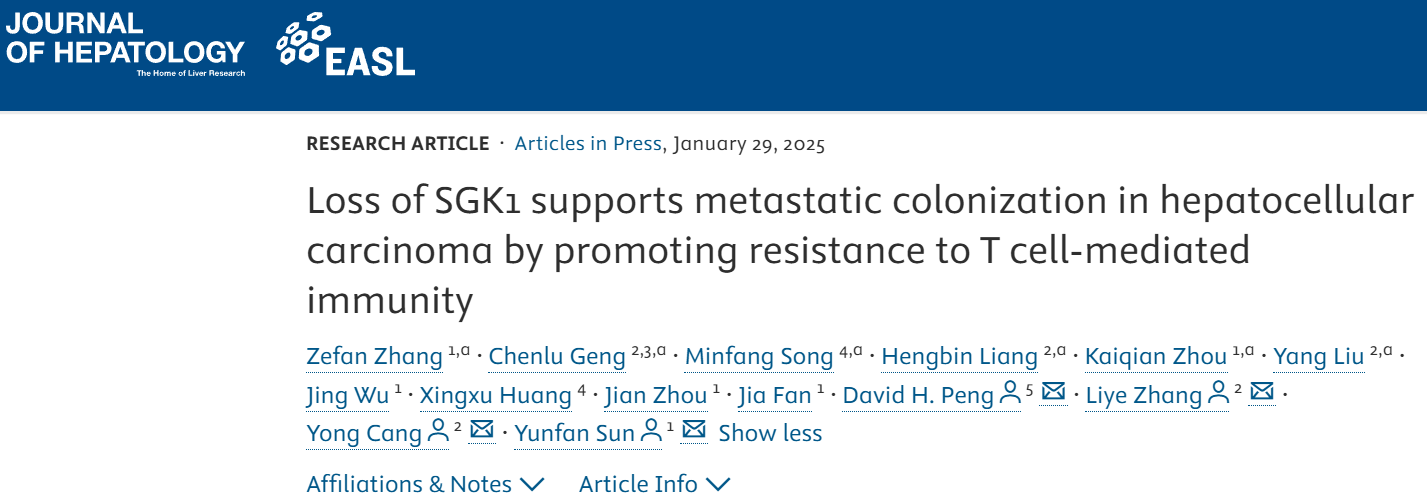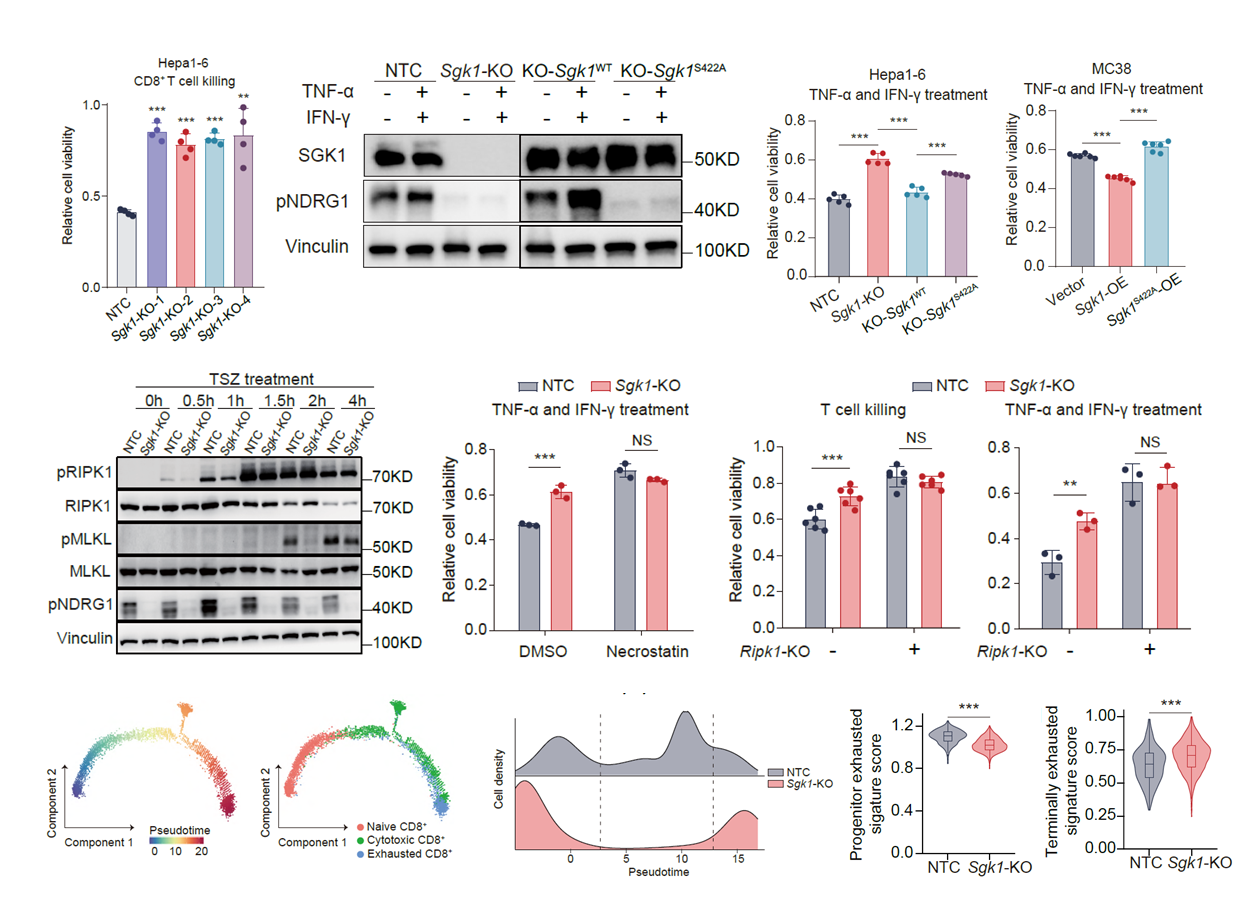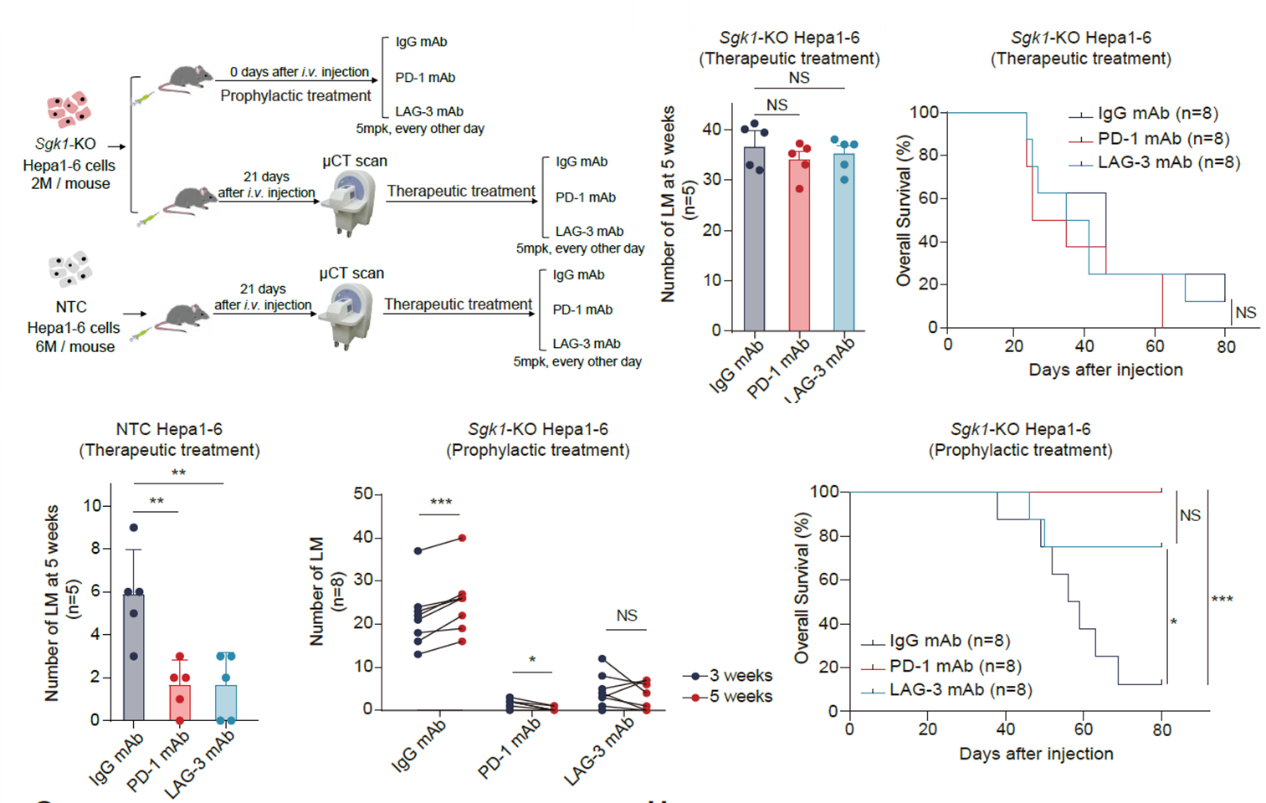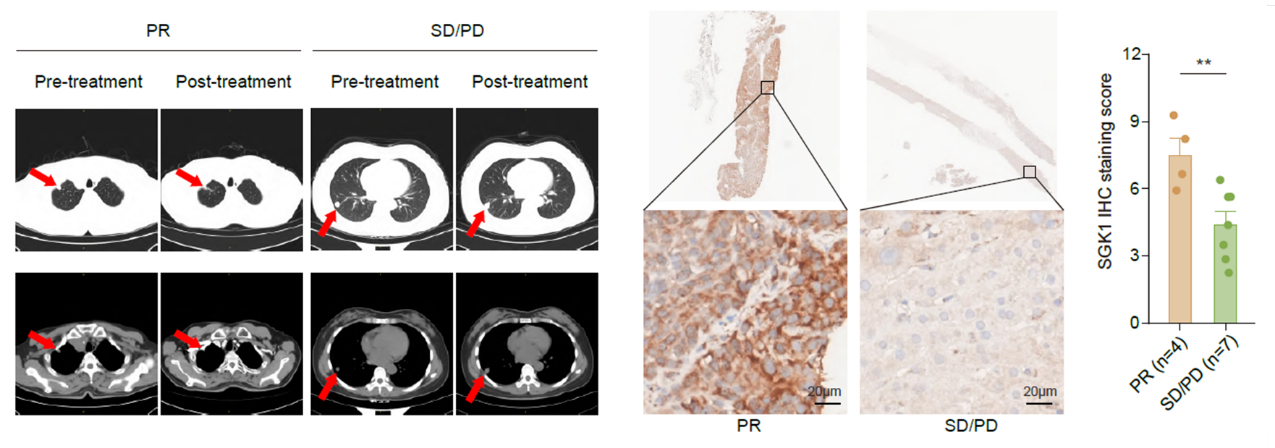Good news!Immune Escape Mechanism of CTC Reaching Metastatic Organs - Revealing the Battlefield Battle of CTC Escape Immune Killing

Triumphant news! Dunwill Medical collaborated with Professor Yunfan Sun's team from the Department of Hepatology at Zhongshan Hospital Fudan University to publish a research paper titled "Loss of SGK1 support meta colonization in hepatocellular carcinoma by promoting resistance to T cell mediated immunity" online in the Journal of Hepatology on January 29, 2025. The paper elucidates that CTCs rely on SGK1 deficiency to evade T cell immune surveillance and promote tumor metastasis and colonization during the process of reaching metastatic lesions.

Metastasis is the main culprit of most cancer-related deaths. However, primary tumors release thousands of cells into circulation every day, but only a few survive due to factors such as anoikis and immune surveillance. Circulating tumor cells (CTCs) rely on multiple immune escape mechanisms to resist immune surveillance by peripheral immune cells such as NK, such as CTCs through N-cadherin-KLRG1, Immune escape mechanisms such as HLA-E: CD94-NKG2A and HLA-C: KIR2DL1[1,2,3]; By adsorbing platelets and relying on the CD155-TIGIT pathway [4] NK immune escape is mediated through various mechanisms such as the formation of CTC clusters[5]. When CTCs reach metastatic organs such as the lungs, immune cells continue to monitor them. In order to achieve tumor cell colonization, CTCs also achieve immune escape through SGK1 deficiency, helping them to colonize in metastatic organs [6].
Sgk1 Deficiency Promotes Tumor Metastasis
The author injected HCC cell lines into wild-type mice and T cell cleared mice and found that T cell cleared mice were unable to form lung metastases, indicating the important role of T cells in the colonization process of HCC lung tissue. To screen for key factors that can evade T cell immune surveillance, the authors constructed an sgRNA library targeting 161 common mutated genes in human tumors, and identified that the sgRNA targeting Sgk1 was the most enriched in wild-type mice. Sgk1-KO promotes the formation of metastatic lesions, while Sgk1-OE inhibits the formation of metastatic lesions; In the queue of liver cancer lung metastasis and colorectal cancer liver metastasis, the expression of SGK1 in metastatic lesions is lower than that in primary lesions; And the group with high expression of SGK1 has more immune infiltration. Prognostic analysis of a cohort of 116 HCC patients and multiple cancer types in TCGA showed that low expression of SGK1 was associated with higher metastasis probability and shorter OS.

Sgk1 Deficiency Can Both Evade T cell Killing and Promote T cell Exhaustion
In vitro T cell killing experiments have shown that Sgk1 deficiency promotes tumor cell tolerance to T cell killing, which depends on the TNF - α and IFN - γ pathways. Both promote SGK1 phosphorylation of its substrate NDRG1 and facilitate RIPK1 mediated necrotic apoptosis. In addition, Sgk1 deficiency can also regulate the state of CD8 T, making it more in a terminal depletion state.

Preventive Immunotherapy Can Effectively Inhibit Sgk1 Deficiency Metastasis
The author conducted anti-PD-1 and anti-LAG-3 immunotherapy on model mice, and the results showed that preventive immunotherapy (starting immunotherapy on the day of tumor cell injection) had significant efficacy in Sgk1 deficient metastasis, while immunotherapy after the formation of metastatic lesions (starting immunotherapy 21 days after tumor cell injection) had no efficacy. This may be because after tumor colonization, the infiltrating CD8 T cells that did not respond to immunotherapy were exhausted at the end. This further supports the involvement of Sgk1 deficiency in T cell immune escape at the beginning of tumor colonization.

SGK1 is a Potential Biomarker for Predicting the Efficacy of Immunotherapy in Metastatic HCC
In depth analysis was conducted on 11 patients with HCC lung metastasis who underwent immunotherapy. The results showed that the expression of SGK1 in the response group was higher than that in the non-response group, indicating that SGK1 may become a predictive biomarker for the efficacy of immunotherapy in metastatic HCC.

Conclusion
CTC falls off from the primary lesion to the periphery and eventually colonizes the metastatic organ, constantly under the surveillance of the immune system. To avoid its surveillance, CTC forms different immune escape mechanisms: on the one hand, it enhances itself (reducing cell death by T cells), on the other hand, it suppresses its opponents (promoting T cell terminal depletion), and works in multiple ways to ensure that it completes its metastatic mission. The expression of the target SGK1 in metastatic lesions studied in this article may serve as a novel tumor marker, providing a new approach for therapeutic intervention to overcome immune resistance in metastatic HCC.
Reference
1,Lou et al., N-cadherin protects oral cancer cells from NK cell killing in the circulation by inducing NK cell functional exhaustion via the KLRG1 receptor. J Immunother Cancer. 2022 Sep;10(9):e005061.
2, Liu et al., Immune checkpoint HLA-E:CD94-NKG2A mediates evasion of circulating tumor cells from NK cell surveillance. Cancer Cell. 2023 Feb 13;41(2):272-287.e9.
3, Liu et al., Immune checkpoints HLA-E:CD94-NKG2A and HLA-C:KIR2DL1 complementarily shield circulating tumor cells from NK-mediated immune surveillance. Cell Discov. 2024 Feb 9;10(1):16.
4, Sun et al., Platelet-mediated circulating tumor cell evasion from natural killer cell killing via immune checkpoint CD155-TIGIT. Hepatology. 2024 May 23. doi: 10.1097/HEP.0000000000000934.
5, Lo et al., Resistance to natural killer cell immunosurveillance confers a selective advantage to polyclonal metastasis. Nat Cancer. 2020 Jul;1(7):709-722.
6, Zhang et al., Loss of SGK1 promotes resistance to T cell-mediated immunity for metastatic colonization. J Hepatol. 2025 Jan 30:S0168-8278(25)00064-9.





